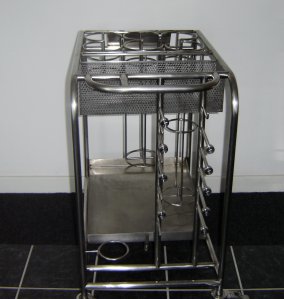Material Selection
Raw Material Selection for the manufacture of CNC machined components and for the fabrication and welding of Sheetmetal items required in present-day manufacturing environments.
Accutool has chosen materials for projects such as Electro Static Discharge (ESD), high impact plastics such as PEEK, tough durable steels, specific stainless steels with higher than normal levels of constituent chemical properties, Plastic’s required to operate at temperatures above 400 degrees Celsius, plastics with resistance to high acidity or high exposure to chemicals, ceramics, sintered and cast materials for various strength and mechanical properties. Aluminium bronze for hardness and durability in bushings and gear chains. Aluminium grades such as HE30 for good anodising properties, tooling plate 6160 for flatness and stability. Steels in ranges AISI 1020 to carbon steels in the AISI range 4140.
We offer various services through our ISO 9001 QMS qualified subcontractors:
- NClear and PTFE anodising
- NHard black anodising
- NElectroless nickel plating
- NChrome conversion
- NStripping
- NSpray painting
- NGraphlon© 612 spray teflon
- NGraphlon© Dry FIlm Lubricant
- NGrit Blasting
- N Hard and PTFE anodising.
- NColour anodising
- N Stainless steel passivation
- N Halar coating for clean line baskets.
- NSandblasting
- NGraphlon© 611
- NTechsol
- N Graphlon© Hard N2
Accutool Ltd. works with a wide range of materials as detailed below. Materials are sourced with full traceability back to source and supplied with a materials Certificate if required, all stock is catalogued on our in-house production management system.
Aluminium
We work with the following standard alloys 1050, 2014, 5083, 6082, 6061 and 7075, together with fully released L111, L113 and L115 material, rolled plate and extruded profiles. Our experience with these materials will enable us to work with your own designated material if not shown above.
Stainless Steel
Stainless steel is stored separately from other steels and care is taken where required to the type of tooling and finishing used in order to minimise surface contaminants. Typical grades of stainless steel handled include 304, 316, 303, and 309 as well as 416 and 500 series materials
Aluminium Bronze
We use aluminium bronze for many applications including bearing brushes, aircraft landing gear components and marine applications, both billet and cast formed and have experience with the production of aluminium bronze components for frictional applications.
Titanium
We work mainly with Ti-6Al-4V (grade 5) although have experience with Ti-6Al-4V ELI (grade 23). Because of titanium’s tendency to gall it is necessary to maintain sharp tools which mean regular tool changes and observation. Another common feature of titanium is its elasticity which causes chatter and requires firm holding to mitigate. For particular operations such as drilling, and tapping we use carbide tooling in place of steel tooling which is prone to wear and breakage and pay particular attention to low cutting speeds, fluids and constant high feed rates.
Copper
Free machining copper (C109 & C111) like many coppers tend to demonstrate sticky machining qualities and so require appropriate cutting fluids and low cutting speeds. Additional problems associated with copper include chip removal from drilled holes, and staining resulting from inappropriate use of cooling fluids. Copper is used widely in the electrical and electronics industries as well as the water and marine industries.
Brass
Most of our brass machining is CZ121 which allows for high-speed machining. Typical applications include hose couplings and fluid handling equipment. Other brass alloys such as CZ124 can be used where higher ductility is required for secondary cold forming processes.
Inconel
Inconel is a difficult metal to work with due to the way it work-hardens after a single pass, as such aggressive but slow cuts with a hard tool are required. Most of our experience is with Iconel 718 which is typically used for high-temperature applications such as turbines, combusters, pressure vessels and heat exchange equipment.
PEEK
Polyetheretherketone (PEEK) is a plastic typically used for aerospace, semiconductor and high-technology applications such as seals, insulators and wear strips. Although easily machined, as with many plastics thermal expansion is many times higher than metal and so localised heating is avoided.
PTFE
PTFE is a difficult material to work with and has a number of variants. Combining low tensile strength, resilience and high thermal expansion, PTFE can prove elastic under machining, more so with turning and can even alter in its dimensions after machining is complete. PTFE is commonly used as an insulator in electrical applications, food and pharmaceutical equipment and laboratory apparatus. PTFE has applications where exposure to aggressive compounds occurs such as acid and caustics for its electrical resistanceas well as for high temperature environments and because it is chemically inert for food and medical and pharmaceutical applications.
Acrylic
We have experience with cell cast, continuous cast and extruded acrylic and utilise differing techniques for each material including varying the type of cutting tool used in order to prevent melting and discolouration. Acrylic has wide applications across all industries and is primarily used for its weatherability, strength and optional transparency.
Phenolic Resins
Phenolic resins, high pressure thermosetting industrial laminated plastics made of composite layers of paper or glass cloth impregnated with a synthetic resin comes in a wide range of forms. Machining is generally easy but each form will require close attention to suppliers specification sheets.
Delrin
Delrin, which is a brand name for acetal resin engineering plastic is a hard-wearing self-lubricating material which is often used as a metal substitute. Most of our experience is with Delrin 150 SA and Delrin 550 SA. Typical applications include medical components, washers, nozzles and for semiconductor components.
Ertalyte
We have experience with the machining of both Ertalyte and Ertalyte TX, which has high wear resistance.precision part that have to sustain high loads. Typical applications include mating surfaces in valves and mechanical housings and food equipment.



